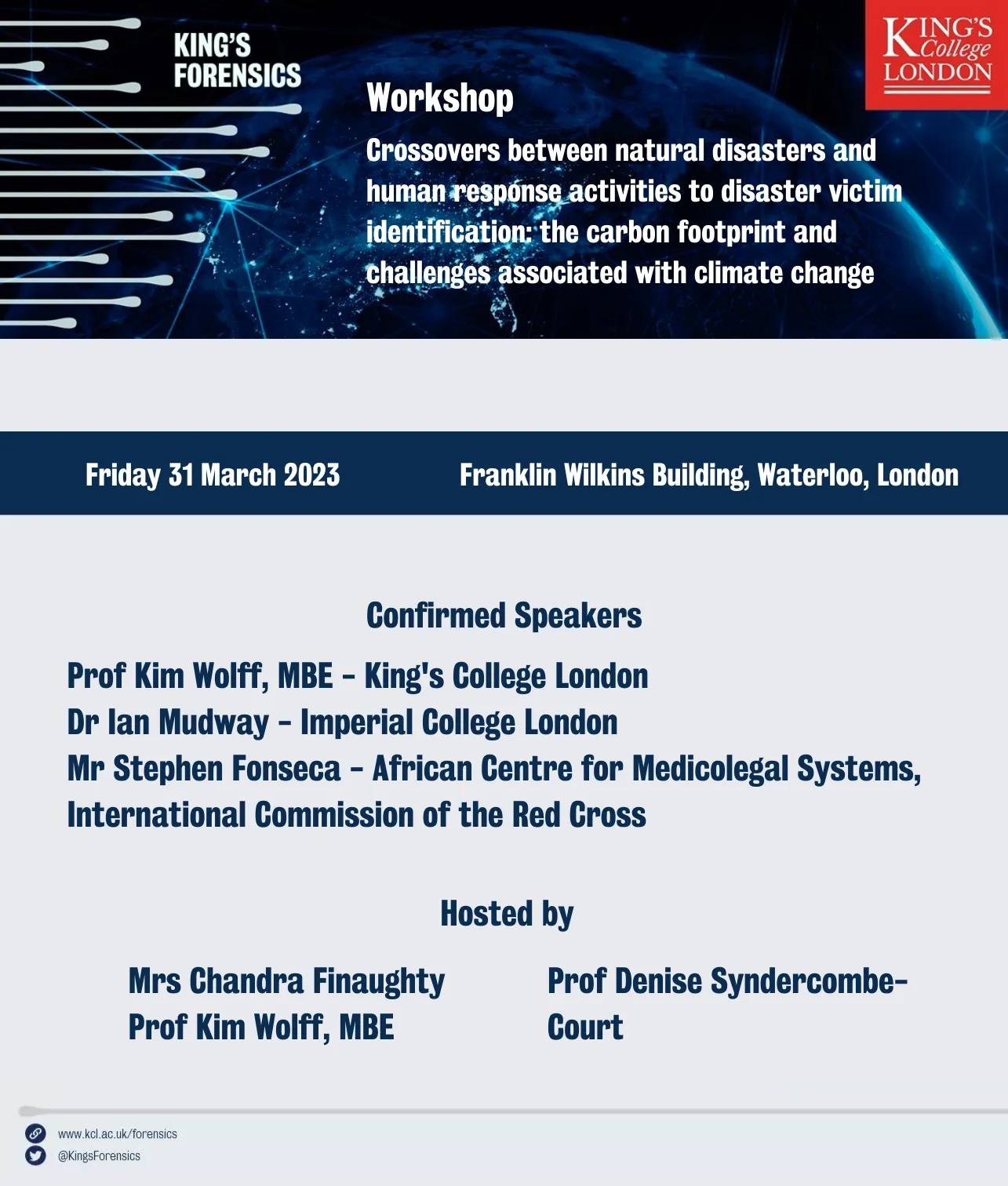Please note: this event has passed

During 2022, there were fifteen natural disasters and many more armed conflicts that resulted in countless deaths. Increasing global instability and climate change means that disaster management and victim identification (DVI) procedures will require modification in response and knowledge of the ongoing challenges faced by responders.
One aspect of disaster management that has not received a lot of attention is assessing the environmental impact, not just of the disaster itself, but also the response effort. Methods to negate further environmental damage, including understanding the carbon footprint associated with both the disaster and response, are under-researched. Understandably, in any disaster event, the priority is to preserve life and reconcile the deceased since mismanagement has significant impact on the psychological health and rehabilitation of communities. However, protection and recovery of the environment, along with provision of resources for future occupation, is vital for the healthy recovery of land and people.
A full-day workshop will be hosted that will bring together forensic experts and policing agencies routinely involved in disaster management and victim identification, alongside environmental scientists, to discuss future research on response efforts to reduce environmental impact.
Event details
When: Friday 31st March 2023
Franklin Wilkins Building, King’s College London, Waterloo SE1 9NQ
Note: Attendance of this event is by invite only
Event details
Groundfloor Suites 1-3Franklin-Wilkins Building
150 Stamford Street London, SE1 9NH



